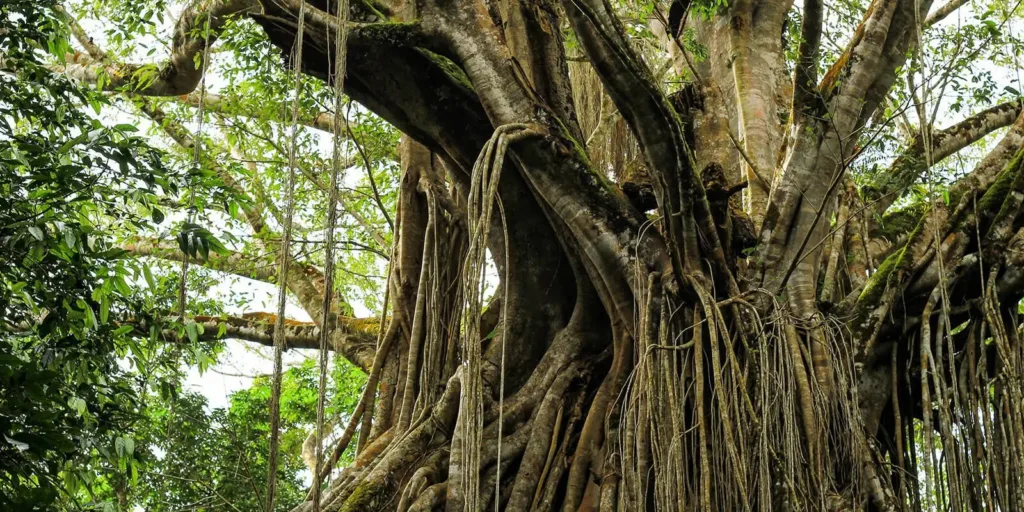Bhutan: A Look Back
This summer will mark a momentous occasion — ten years of consecutive programming for The School for Field Studies in the Kingdom of Bhutan. From its inception through the spring semester of 2019, SFS has welcomed nearly 300 students to explore the rich culture, biodiversity, and dramatic mountain views of the Bhutanese Himalayas. Initially only a six-week summer program was offered, but SFS expanded its portfolio to include semester programs in 2015.
The vision for a program in Bhutan came from an SFS Trustee, who provided invaluable introductions to government and community partners, as well as necessary start-up funding. Bhutan had very recently transitioned to a democracy, holding its first elections in 2007, and rapid change and development was on the horizon. SFS students would have the unique opportunity to see a country undergoing significant transition, as well as witness the challenges of protecting biodiversity while maintaining traditional rural lifestyles – all against the backdrop of Buddhist philosophy and the Bhutanese concept of Gross National Happiness.

Photo courtesy of Alison Simerly

Photo courtesy of Gayle Miner
SFS launched its first pilot program in the summer of 2010. The program was titled “Eastern Himalayan Forests and Rural Livelihoods,” and it was delivered in partnership with The Ugyen Wangchuck Institute for Conservation and Environmental Research (UWICER), a research and training institution in Bhutan, and was housed at their campus at a former royal residence in Bumthang. We welcomed 13 students for our first summer from 11 colleges across the United States.
Alyssa Cheung, a Yale student and SFS scholarship recipient from that inaugural summer program, wrote: “I’ve realized more than ever the need to adopt and foster in my generation and in future generations a sense of deep ecology, which finds moral reasons to help preserve the environment. It showed me that it is simply not enough to make conservation a fad or a mandate—it must resonate with a deeper, underlying sense of responsibility. And more importantly, it taught me, that despite the most technologically advanced solutions, no matter how far science progresses, no remedy will work unless we first change the way we act. It’s something I have heard countless times before, but until witnessing it in Bhutan, I had little faith in the existence and power of collective responsibility towards the environment and its effects on shaping, quite literally, the landscape.”
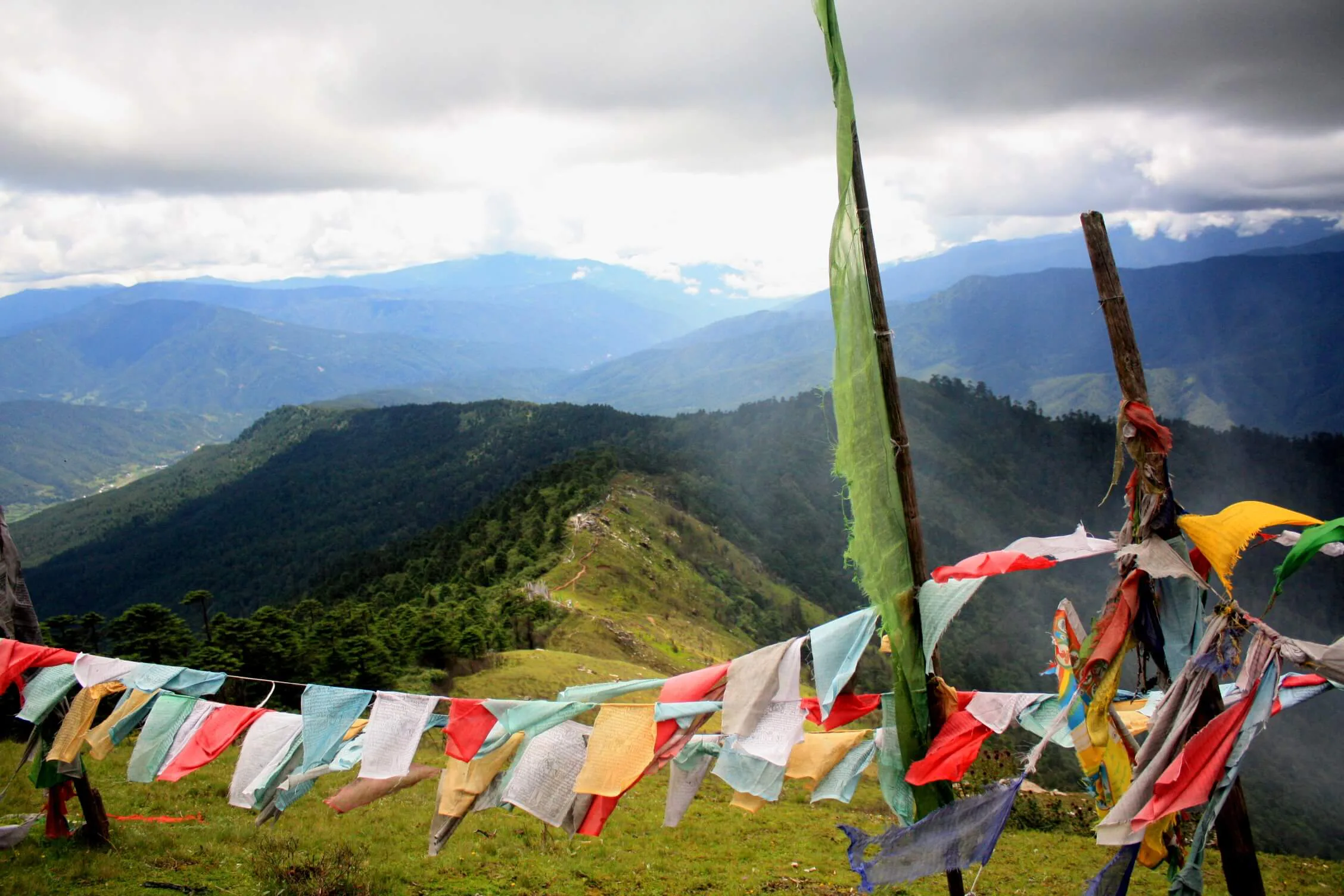
Photo courtesy of Alison Simerly
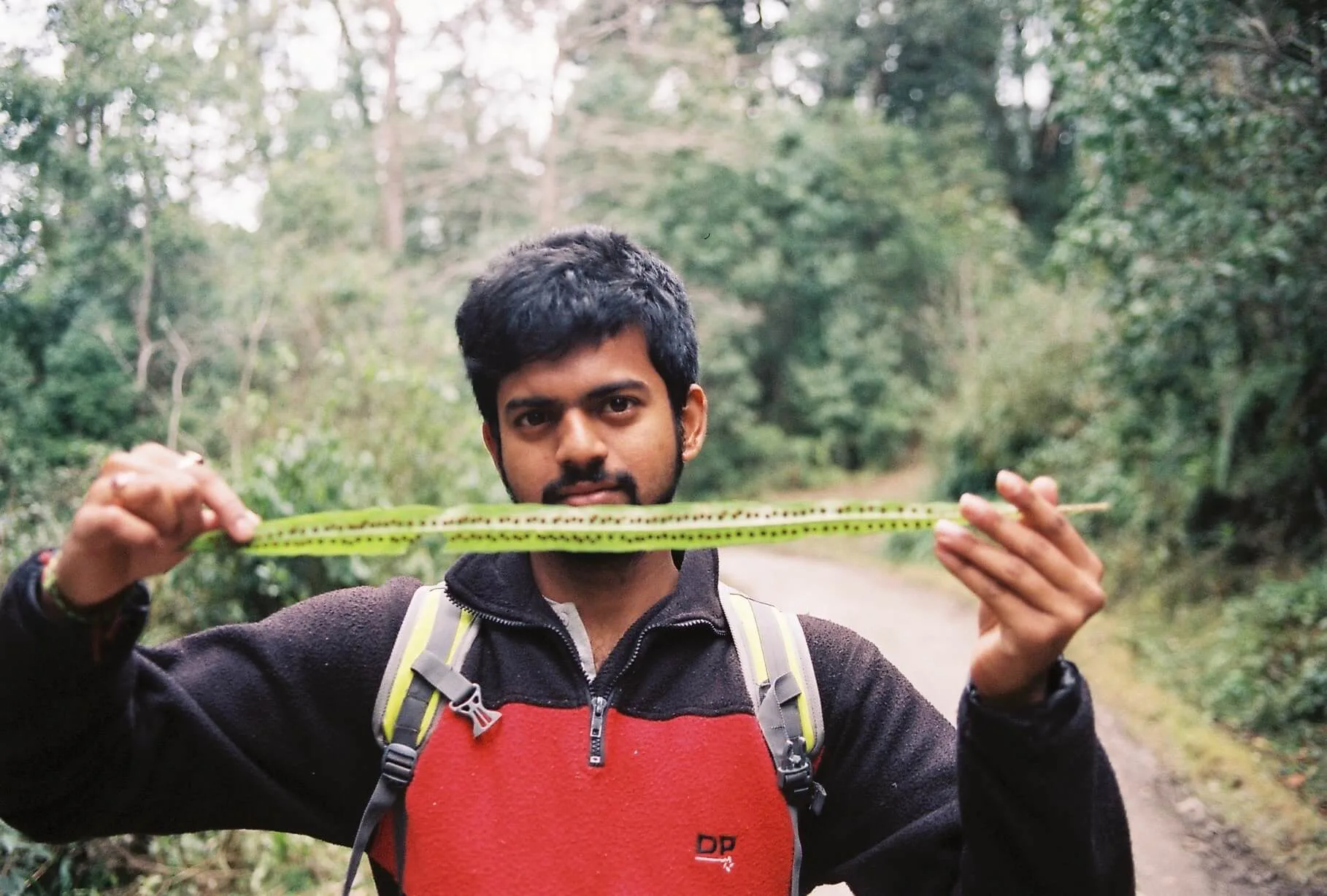
Photo courtesy of Adair Andre
Alyssa and her classmates have gone on to bring their insights and experience to a wide range of professions in education, manufacturing, healthcare, government, technology and more.
The SFS footprint in Bhutan has evolved from a summer program to a full Center offering year-round programming (Fall, Spring, Summer). It is now known as the SFS Center for Himalayan Environment and Development Studies and led by Dr. Nawang Norbu, formerly Director of UWICER and currently Vice President for the Bhutan Ecological Society (BES). Space limitations at the UWICER Bumthang campus necessitated a move to the Paro Valley area, which has happily resulted in fewer logistical challenges and new opportunities for research. SFS now employs 20 people at the Center, including the Director, full time faculty members, program staff, cooks, drivers, and property managers.
The Fall 2018 semester program, titled “Himalayan Environment and Society in Transition,” welcomed over 20 students from over 15 universities. Course content spanned the culture and history of Bhutan, trajectory and priorities in rural development, ecology of the eastern Himalayas, and conservation and resource management. Students learned techniques related to socio-economic surveys, forest inventory, camera trapping, biodiversity assessments, and creating a livelihoods map of the area around the Center in Paro. Cultural elements of the program include homestays, engagements with local schools, visits to government institutions, and conversations at several monasteries and dzongs.
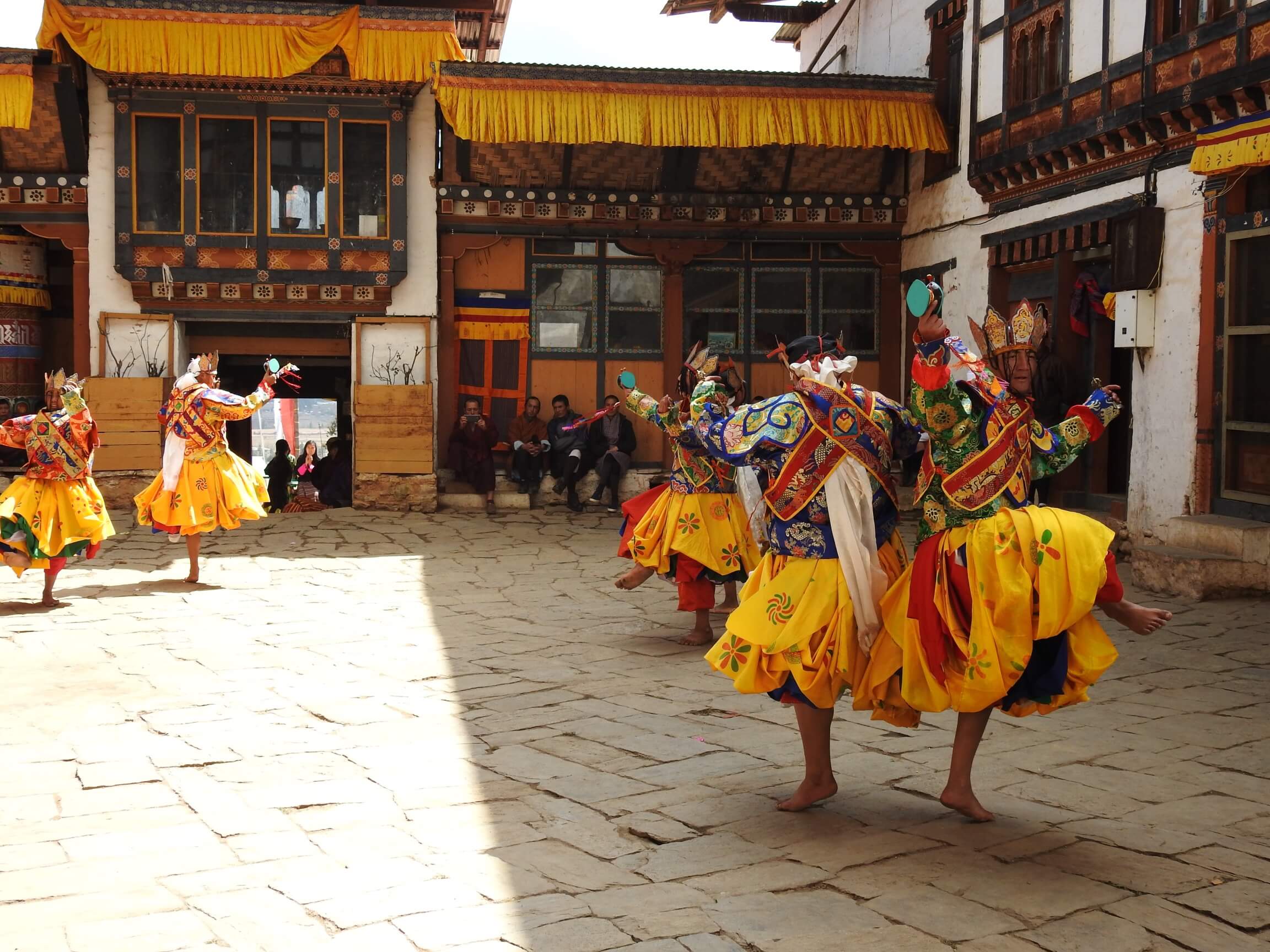
Photo courtesy of Kencho Tshering
This past semester, students conducted research projects in four areas: Paro Valley riparian ecology and forest mammal surveys; the effects of forest fires in temperate conifer forests; socio-economic and policy aspects surrounding rice self-sufficiency; and youth employment and opportunities for building nature-based enterprises. A classroom symposium was held two days before students presented their findings at the annual symposium of the Bhutan Ecological Society which saw an attendance of over 50 people including notable guests from the Ministry of Agriculture and Forests and the President of the Bhutan Ecological Society.
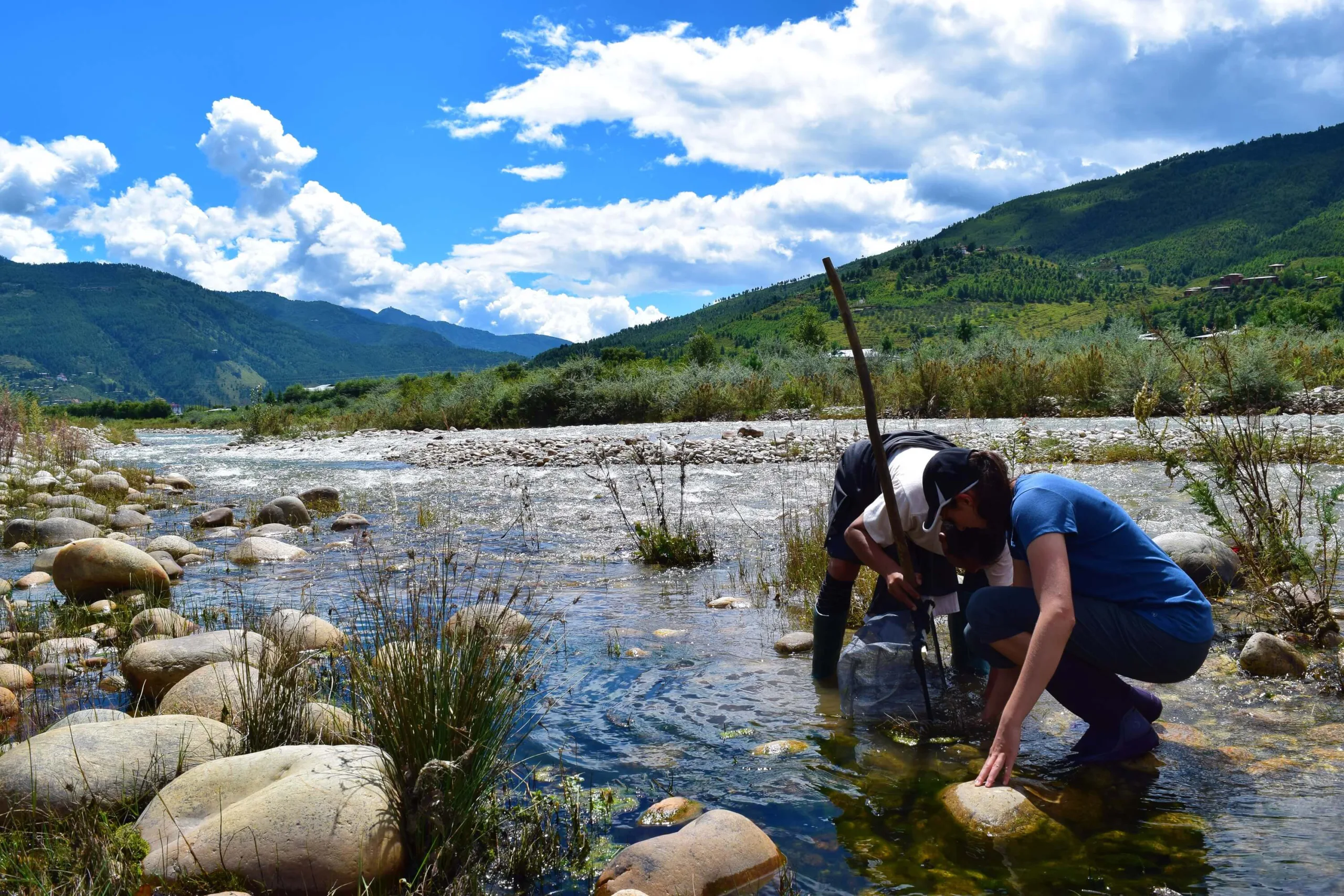
Photo courtesy of Greg Francois

Photo courtesy of Jesse Lewis
Community engagement and service included weekly visits to Thuksel Elementary School to lead craft projects with recycled materials and read stories with environmental themes; and a partnership with Clean Bhutan to help establish a new hotel waste reuse initiative in the Paro Valley area. Also, students are participating in a ‘Fruits for All’ initiative, planting 80 fruit trees (apples, walnuts, pears, peaches and cherries) in open green spaces in Thimphu and Paro.
SFS Bhutan Fall 2018 and Duke University student Andrea Kolarova writes: “The School of Field Studies in Bhutan prospers from a wonderful and hardworking team of faculty and staff. The professors, directors, and support staff communicate and coordinate with each other to craft a program that takes us to important sites across the country that illustrate ideas we are learning about in class. SFS has an incredible array of partnerships with organizations from the local to international scale and is able to pull resources and guest lecturers from a variety of backgrounds. What I learned in this past semester came together in a tight, interconnected package. What we studied in my Language and Culture class served as a background to the Buddhism-influenced policies we learned about in Political and Socioeconomic Dimensions of the Environment. The environmental policies we learned about helped us understand the changes occurring in Bhutan as discussed in Land Use, Natural Resources, and Conservation. Finally, Mountain Ecology illustrated the land use and human population distributions changes occurring in Bhutan with a focus on the local wildlife so valued by the Bhutanese. And all of our field excursions supported concepts we were studying in every class! Never before had my daily observations and all of my classes come together to paint an all-encompassing, complex picture of a society in transition.”
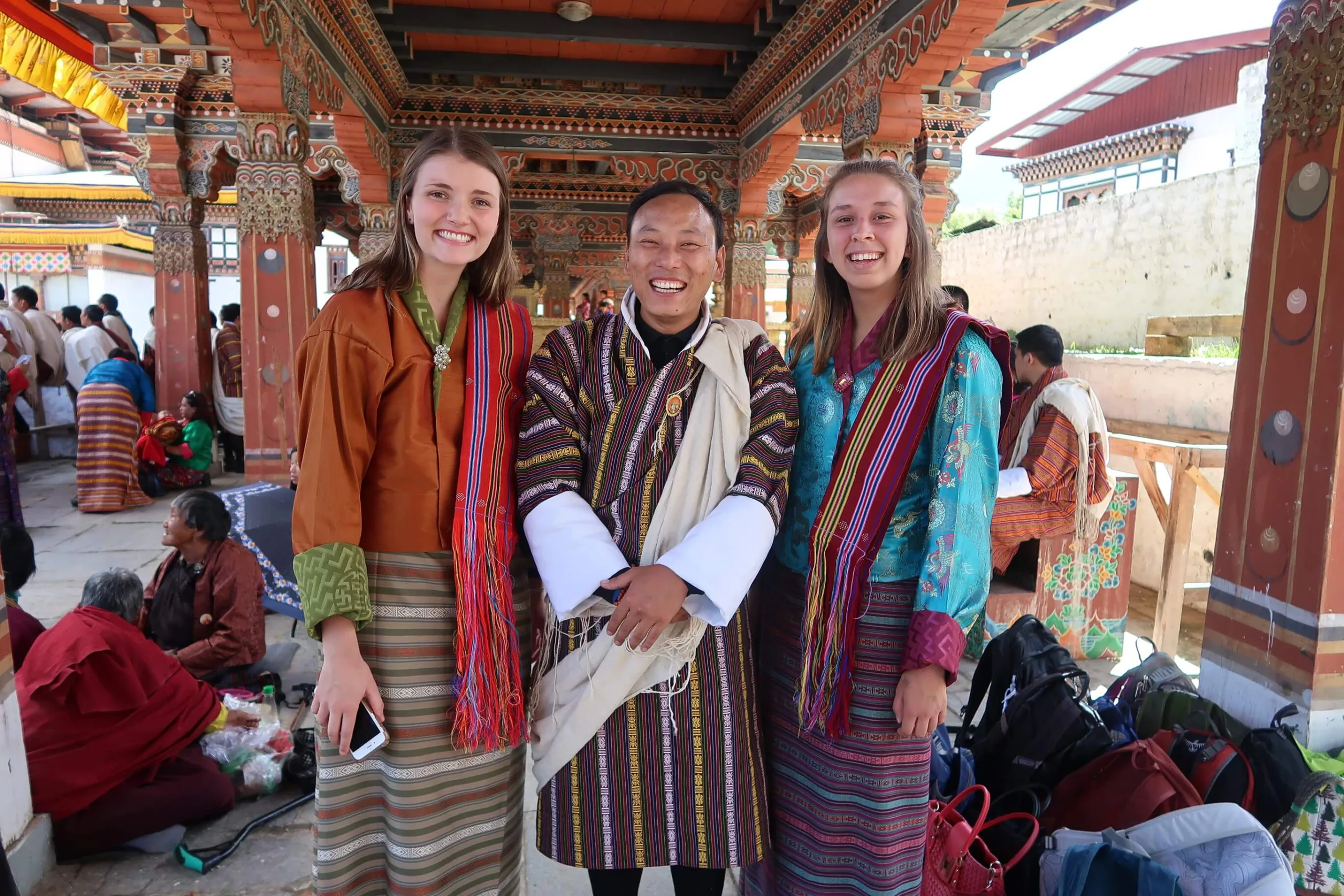
Photo courtesy of Erin Baggs
Ten years later, a generation of US students have been able to live, work, study, and learn in one of the most interesting and perhaps least understood cultures in the world. And, with research and course offerings ever evolving and expanding, the program is well poised to thrive in its next ten years.

Photo courtesy of Anna Jones

Photo courtesy of Greg Francois
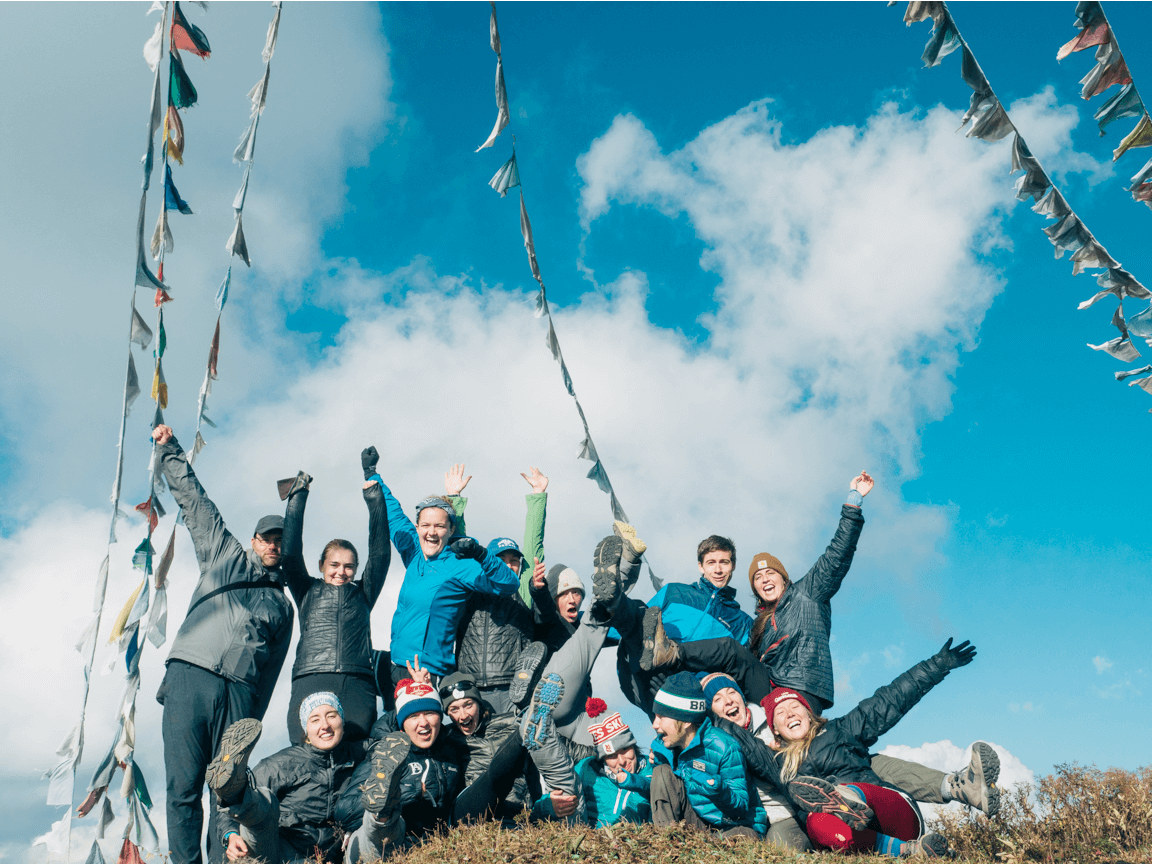
Photo courtesy of Dana Scheffler
Related Posts
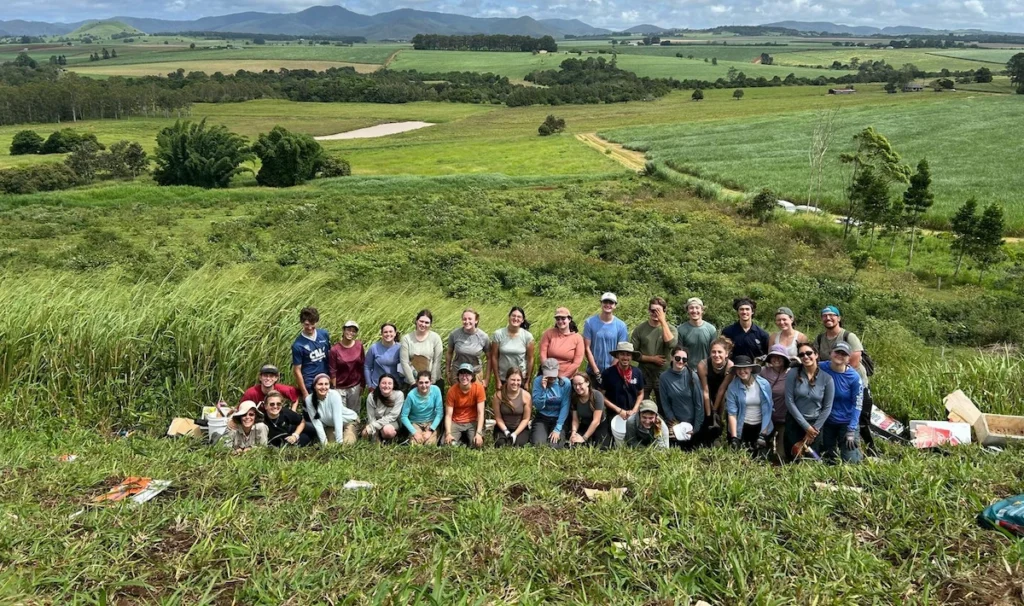
Cinder Cone Chronicles: Lessons from Drought, Data, and Determination

